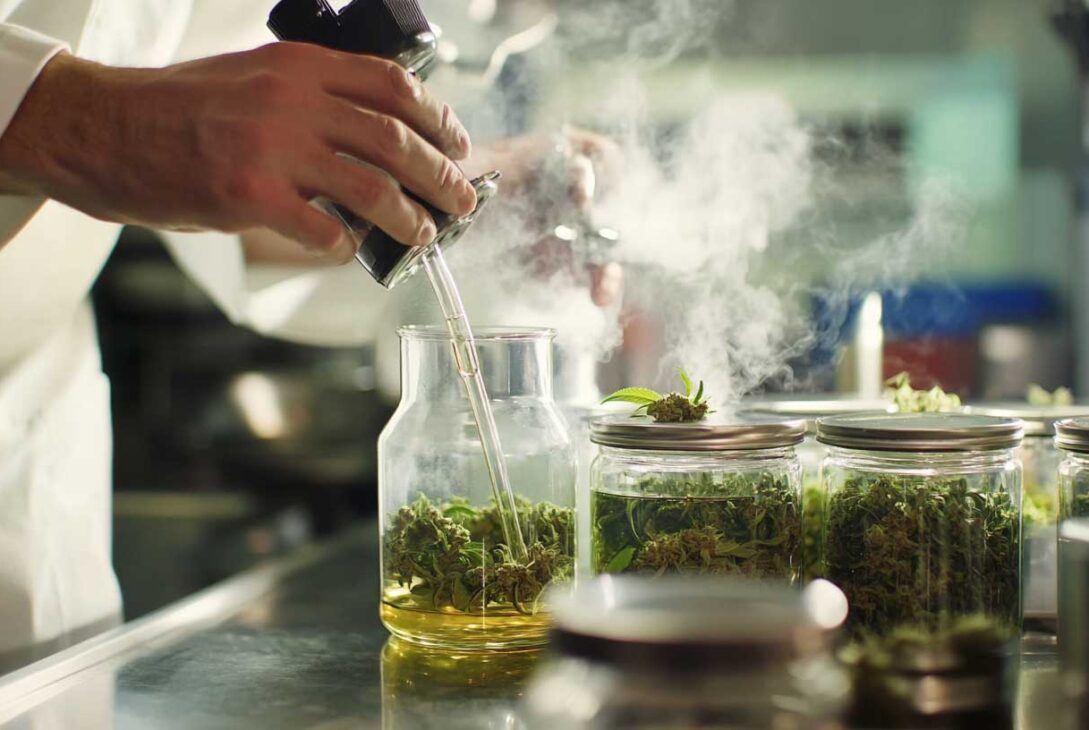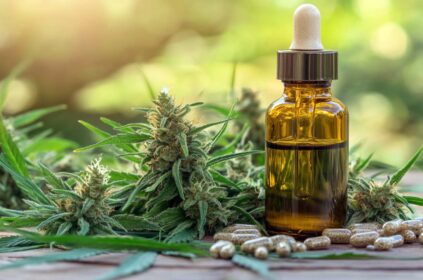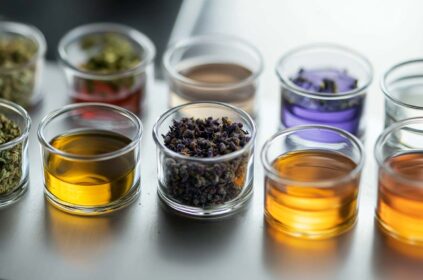Introduction
The rise of Delta 8 THC in the hemp and cannabis market has sparked curious conversations and widespread interest. Known for its distinct effects, Delta 8 is not just another cannabinoid. At the heart of producing high-quality Delta 8 distillates lies a fundamental component: terpenes. These aromatic compounds are more than just the flavorful notes in cannabis; they significantly enhance the overall effects and user experience. In this guide, we’ll explore the intricacies of Delta 8 distillation, the crucial role of terpene preservation, and how this process impacts the final product’s quality, potency, and flavor.
Delta 8 Distillation Process
The journey of Delta 8 THC from hemp plant to consumer-ready distillate is a meticulous one, involving several distinct stages that require precision and care.
Extraction Methods
The first step, extraction, holds immense sway over the terpene content in the final product. Different extraction techniques can yield varying results.
- CO2 Extraction: This method is widely favored due to its efficiency in capturing cannabinoids and terpenes at lower temperatures. Because this process doesn’t rely on excessive heat or harsh solvents, the delicate terpenes—responsible for cannabis’ unique flavors and potential therapeutic benefits—remain relatively intact.
- Solvent Extraction: Techniques utilizing harsh solvents can inadvertently degrade valuable terpenes, leading to a distillate that lacks both flavor and potency. These methods may be effective for THC extraction but often result in compromised quality.
Distillation
After extraction, distillation comes into play—this is where Delta 8 THC is isolated from other cannabinoids and plant materials. While distillation is essential for purifying the product, it generally involves heat, which poses a risk to terpene integrity.
- Fractional Distillation: This refined method allows for the separation of compounds based on different boiling points, offering a method to retain more terpenes. Advanced distillation practices often focus on optimizing temperatures and times to minimize terpene loss.
Post-Extraction Processing
Once distillation is complete, further processes such as winterization may be performed to remove impurities like fats and waxes. However, these steps can also diminish terpene content. The challenge for manufacturers lies in balancing thorough purification with the retention of the plant’s natural compounds.
Importance of Terpene Preservation
Flavor and Aroma
Terpenes contribute vast tapestries of flavors and aromas, from zesty citrus to deep berry notes. When preserved, these compounds enhance the Delta 8 distillate’s profile, creating a product that is not just effective but also enjoyable to consume.
- Imagine experiencing a tart lime burst with every inhale—terpenes are what craft that moment.
Entourage Effect
The entourage effect is a well-studied phenomenon where cannabinoids and terpenes work synergistically to enhance their effects. Full-spectrum Delta 8 distillates, which include a complete array of terpenes, provide a more holistic experience than isolated cannabinoids alone.
- Products that leverage this effect often demonstrate increased efficacy, leading users to report improved therapeutic benefits.
Quality and Potency
Products with high terpene retention usually feature richer and more complex profiles, making them not only more enjoyable but potentially more effective. Users often find that a product with preserved terpenes can lead to heightened sensations and benefits.
Types of Delta 8 Distillates and Terpene Preservation
As the market for Delta 8 grows, so does the variety of distillates available, each with its own relationship to terpene preservation.
Full-Spectrum Delta 8 Distillate
These distillates capture a full spectrum of cannabinoids, terpenes, and beneficial compounds from the hemp plant. They provide the entourage effect, enhancing both flavor and therapeutic impact.
- Live Resin Delta 8: Particularly prized, live resin is made from freshly harvested plants that are immediately frozen, preserving every delicate terpene and cannabinoid before the distillation process begins.
Delta 8 Isolate
Delta 8 isolates are the most purified forms of Delta 8 THC, stripped of other compounds in the process. While they offer specific effects without the influence of other cannabinoids, they typically lack terpenes unless added back into the product.
- Terping: This process allows manufacturers to introduce terpenes to isolates, improving flavor and effects, but not every product utilizes this method effectively.
Terpene-Infused Delta 8 Distillate
These products involve adding back beneficial terpenes after distillation. This method not only improves flavor but can also amplify the effects, making them particularly popular among consumers who enjoy dabbing or vaping.
Quality Indicators: Color and Purity
When selecting a Delta 8 distillate, color can serve as a crucial indicator of quality:
- Clear or Light Amber: Suggests high purity, though it may indicate that some terpenes have been removed.
- Dark Amber or Gold: Often reflects a well-balanced distillate containing beneficial terpenes without sacrificing purity.
- Green: Indicates possible leftover chlorophyll or oxidized terpenes—often a sign of lower quality.
- Rose or Pink: Typically points to the use of bleaching agents, which can destabilize the product and reduce potency.
Conclusion
Understanding the role of terpene preservation in the Delta 8 distillation process is essential for consumers seeking high-quality products. By recognizing the extraction methods, distillation techniques, and types of distillates available, you can make informed choices that align with your preferences and needs.
Actionable Tips
- Prioritize CO2 Extraction: Seek out products that use CO2 extraction for optimal terpene preservation.
- Opt for Full-Spectrum Products: These distillates not only provide a richer experience but also harness the entourage effect.
- Examine Color Quality: Look for light amber or gold-colored products, indicating a desirable balance of purity and terpenes.
- Avoid Products with Bleaching Agents: Steer clear of rose or pink tinted distillates, as they could compromise overall quality.
By focusing on terpene preservation, manufacturers can create exceptional Delta 8 distillates that satisfy user expectations around quality, potency, and flavor, ensuring an enriched experience for consumers who explore this fascinating realm of hemp.





















